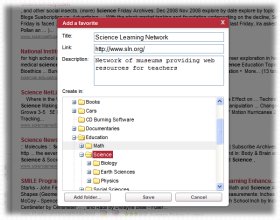|
Education
Web
Viewing 1-3 of 3 total results
included within regular classroom assessment but which are not assessed at the State level. Skills to Support Standards - common across grade levels. Oregon Standards Newspaper — 2009–2010 School Year — Oregon Department of Education Page 29B High School High School Reading...
1
0
included within regular classroom assessment but which are not assessed at the State level. Skills to Support Standards - common across grade levels. Oregon Standards Newspaper — 2009–2010 School Year — Oregon Department of Education Page 29B High School High School Reading analyze words, recognize words, and learn to read grade-level text fluently across the subject areas . DeCoDing AnD worD reCognition EL.HS.RE.01 Read at an independent and instructional reading level appropriate to grade level
1
0
http://www.ode.state.or.us/teachlearn/real/documents/elcm.pdf#page=1
www.ode.state.or.us/teachlearn/real/documents/elcm.pdf#page=1
included within regular classroom assessment but which are not assessed at the State level. Skills to Support Standards - common across grade levels. Oregon Standards Newspaper — 2009–2010 School Year — Oregon Department <span class="highlight">of</span> Education Page 29B High School High School Reading analyze words, recognize words, and learn to read grade-level text fluently across the subject areas . DeCoDing AnD worD <span class="highlight">reCognition</span> EL.HS.RE.01 Read at an <span class="highlight">independent</span> and instructional reading level appropriate to grade level
Middle School §110.B. (5) Listening/speaking/audiences. The student speaks clearly and appropriately to different audiences for different purposes and occasions. The student is expected to: (A) adapt spoken language such as word choice, diction, and usage to the audience, purpose, and o...
1
0
Middle School §110.B. (5) Listening/speaking/audiences. The student speaks clearly and appropriately to different audiences for different purposes and occasions. The student is expected to: (A) adapt spoken language such as word choice, diction, and usage to the audience, purpose, and occasion (4-8); (B) demonstrate effective communications skills that reflect such demands as interviewing, reporting, requesting, and providing information (4-8); (C) present dramatic interpretations of experiences
22
0
http://ritter.tea.state.tx.us/rules/tac/chapter110/ch110b.pdf#page=22
ritter.tea.state.tx.us/rules/tac/chapter110/ch110b.pdf#page=22
§110.B. Middle School (E) use effective rate, volume, pitch, and tone <span class="highlight">for</span> the audience and setting (4-8); and (F) clarify and support spoken ideas with evidence, elaborations, and examples (4-8). (6) Reading/word identification. The student uses a variety <span class="highlight">of</span> word <span class="highlight">recognition</span> strategies. The student is expected to: (A) apply knowledge <span class="highlight">of</span> letter-sound correspondences, language structure, and context to recognize words (4-8); (B) use structural <span class="highlight">analysis</span> to identify root words with prefixes such as
29
0
http://ritter.tea.state.tx.us/rules/tac/chapter110/ch110b.pdf#page=29
ritter.tea.state.tx.us/rules/tac/chapter110/ch110b.pdf#page=29
Middle School §110.B. (5) Listening/speaking/audiences. The student speaks clearly and appropriately to different audiences <span class="highlight">for</span> different purposes and occasions. The student is expected to: (A) adapt spoken language such as word choice, diction, and usage to the audience, purpose, and occasion (4-8); (B) demonstrate effective communications skills that reflect such demands as interviewing, reporting, requesting, and providing <span class="highlight">information</span> (4-8); (C) present dramatic interpretations <span class="highlight">of</span> experiences
42
0
http://ritter.tea.state.tx.us/rules/tac/chapter110/ch110b.pdf#page=42
ritter.tea.state.tx.us/rules/tac/chapter110/ch110b.pdf#page=42
middle school students continue to read on their own or listen to texts read aloud <span class="highlight">for</span> the purpose <span class="highlight">of</span> enjoyment. Middle school students read both printed texts and electronic media independently, bringing with them various strategies to aid in comprehension. Significant blocks <span class="highlight">of</span> time are provided <span class="highlight">for</span> reading both <span class="highlight">independent</span> and instructional-level material <span class="highlight">for</span> varied purposes such as collecting <span class="highlight">information</span>, learning about and appreciating the writer's craft, and discovering models <span class="highlight">for</span> their own writing
plan will remain in effect for students who entered ninth grade for the first time in or before 2002-2003. The revised plan is effective for students who enter the ninth grade for the first time in or after 2003-2004. Students who complete the requirements for an...
1
0
plan will remain in effect for students who entered ninth grade for the first time in or before 2002-2003. The revised plan is effective for students who enter the ninth grade for the first time in or after 2003-2004. Students who complete the requirements for an academically challenging high school program will be named North Carolina Academic Scholars and receive special recognition. Recognition The students who qualify for this special recognition • will be designated by the State Board of
22
0
http://www.dpi.state.nc.us/docs/curriculum/languagearts/scos/2004/elacurriculumall.pdf#page=22
www.dpi.state.nc.us/docs/curriculum/languagearts/scos/2004/elacurriculuma...
plan will remain in effect <span class="highlight">for</span> students who entered ninth grade <span class="highlight">for</span> the first time in or before 2002-2003. The revised plan is effective <span class="highlight">for</span> students who enter the ninth grade <span class="highlight">for</span> the first time in or after 2003-2004. Students who complete the requirements <span class="highlight">for</span> an academically challenging high school program will be named North Carolina Academic Scholars and receive special <span class="highlight">recognition</span>. <span class="highlight">Recognition</span> The students who qualify <span class="highlight">for</span> this special <span class="highlight">recognition</span> • will be designated by the State Board <span class="highlight">of</span>
|
